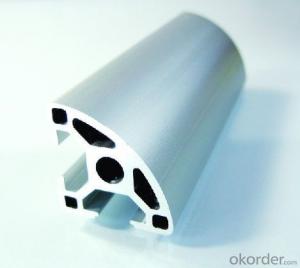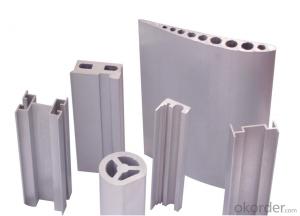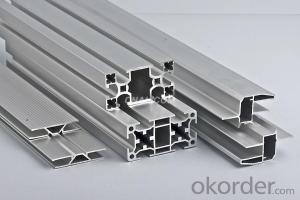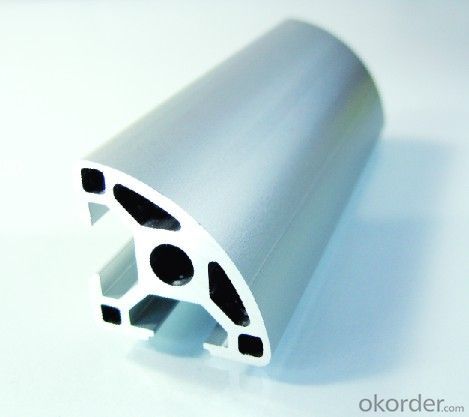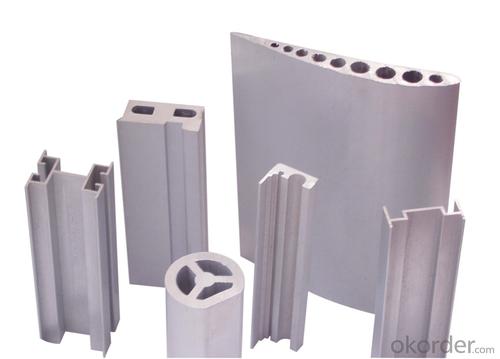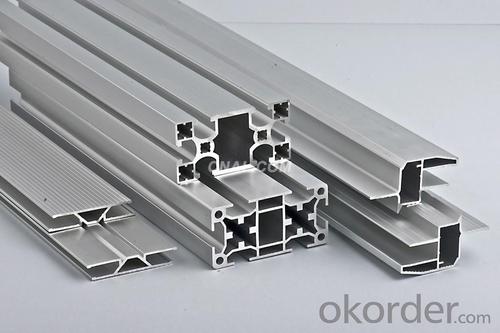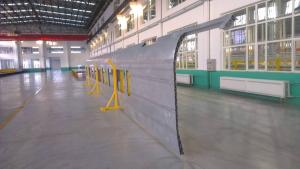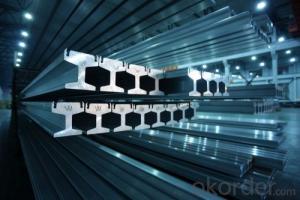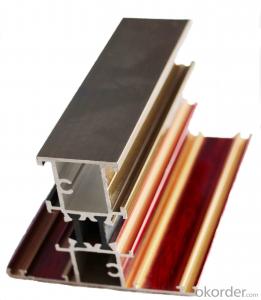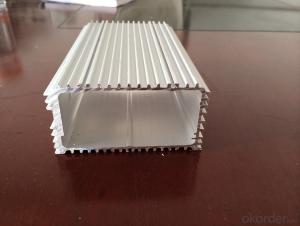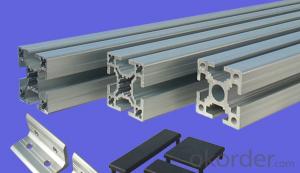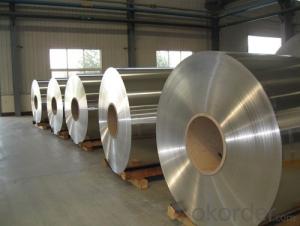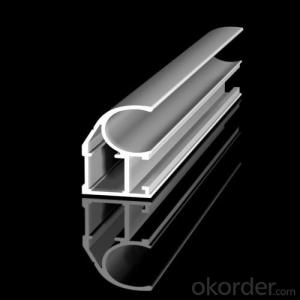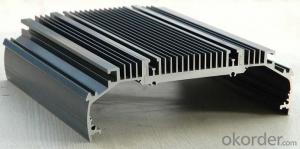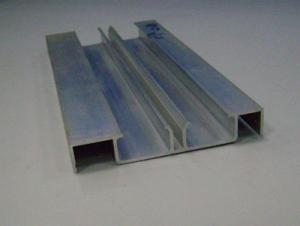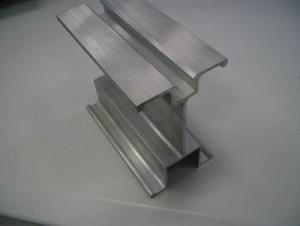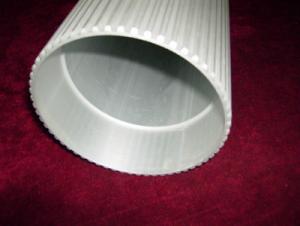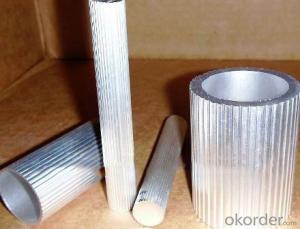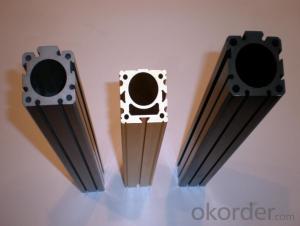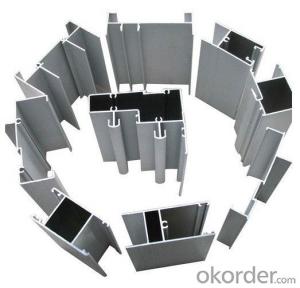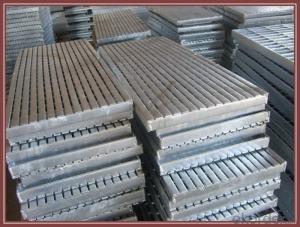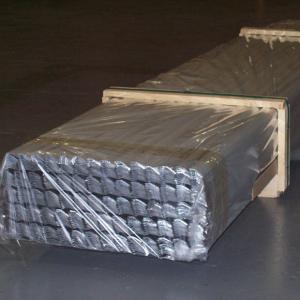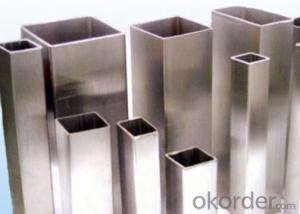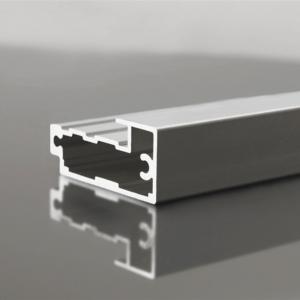Aluminum Extrusion Profiles Uk - Architectural Aluminium Profile Extrusion
OKorder Service Pledge
OKorder Financial Service
You Might Also Like
Aluminium is a relatively soft, durable, lightweight, ductileand malleablemetalwith appearance ranging from silvery to dull gray, depending on the surfaceroughness. It is nonmagnetic and does not easily ignite. A fresh film ofaluminium serves as a good reflector (approximately 92%) of visible lightand an excellent reflector (as much as 98%) of medium and far infraredradiation. The yield strength of pure aluminium is 7–11 MPa,while aluminium alloys have yield strengths ranging from200 MPa to 600 MPa. Aluminium has about one-third the densityand stiffness of steel. It is easily machined,cast, drawn and extruded.
Features:
Material | Alloy 6063,6061,6005or according to customer’s choice |
Temper | T3, T4, T5, T6 |
Surface | Anodize, electrophoresis, powder coating, PVDF coating, wood grain painting, matted, etc. |
Length | Coating 6.5 meters, Anodizing 6.5 meters, Mill finish 5 meters |
Application | Industrial, electrical equipment(TV set, air conditioner, refrigerator, computer), decoration,construction, transportation |
Custom Made | We can package following with customer's request. |
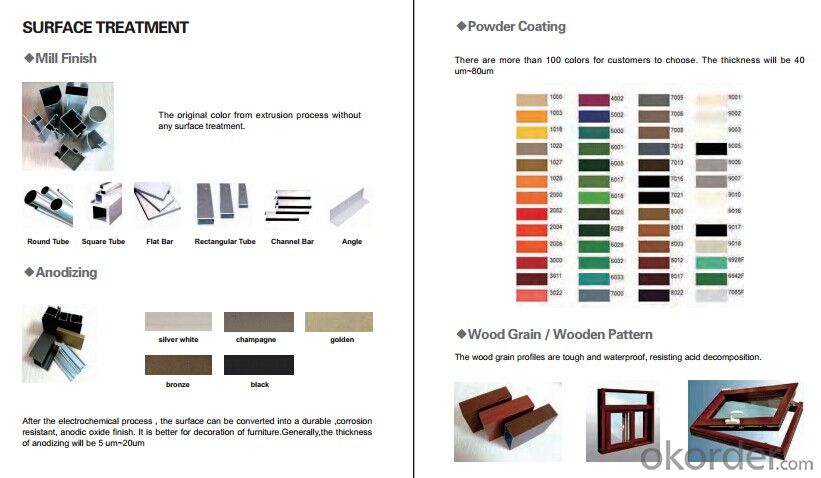
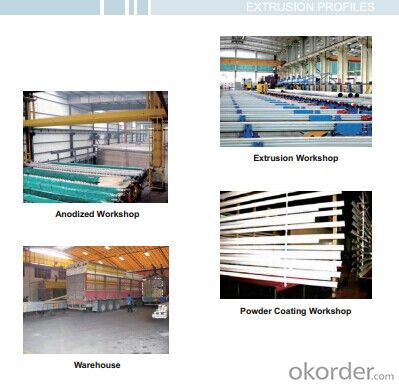
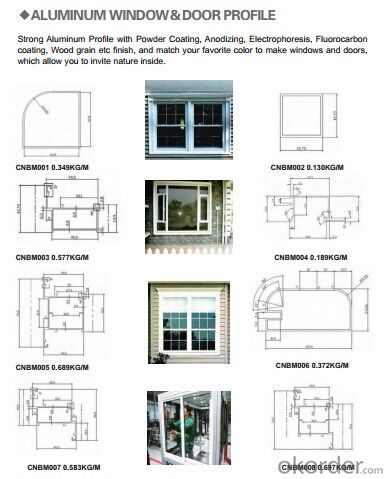
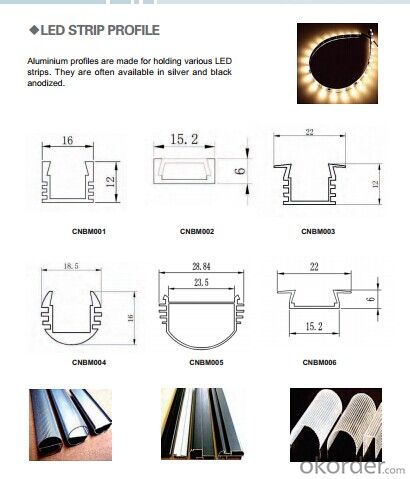
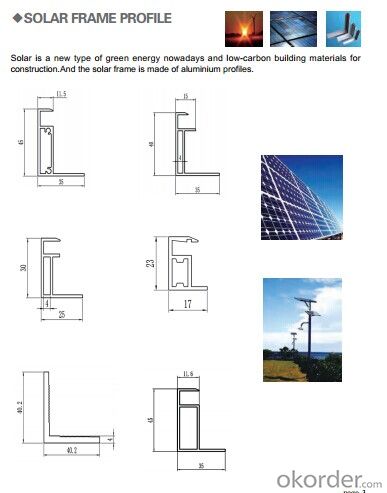
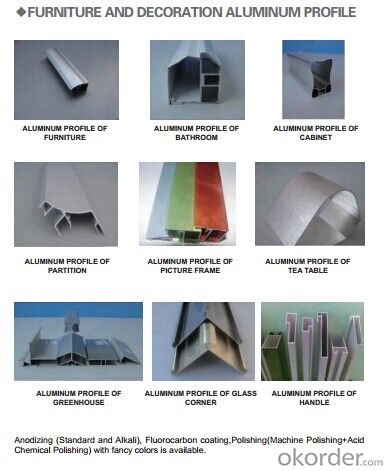
- Q: What precautions should be taken while handling aluminum profiles to ensure safety?
- <p>When working with aluminum profiles, it's important to take several safety measures. Always wear appropriate personal protective equipment (PPE), including safety glasses to protect your eyes from flying debris, gloves to protect your hands, and a dust mask to prevent inhalation of dust particles. Ensure that the work area is well-ventilated to avoid inhaling aluminum dust. Use proper tools for cutting and shaping aluminum profiles to minimize the risk of injury. Keep the work area clean and free from clutter to prevent tripping hazards. Be cautious when handling sharp edges and ends of cut aluminum profiles. Lastly, be aware of the weight of the aluminum profiles to avoid back injuries when lifting.</p>
- Q: Are aluminum profiles suitable for automotive heat exchangers?
- Yes, aluminum profiles are suitable for automotive heat exchangers. Aluminum is a lightweight and highly conductive material that enables efficient heat transfer, making it an ideal choice for heat exchangers in automotive applications. Additionally, aluminum profiles can be easily formed into various shapes, allowing for design flexibility and optimal integration into the vehicle's cooling system.
- Q: Can aluminum profiles be used in agricultural greenhouse manufacturing?
- Yes, aluminum profiles can be used in agricultural greenhouse manufacturing. Aluminum is a lightweight and durable material that is resistant to corrosion, making it suitable for use in greenhouse structures. Aluminum profiles can be used to create the framework of the greenhouse, providing structural support and stability. Additionally, aluminum profiles can be easily customized and assembled, allowing for flexibility in greenhouse design. The use of aluminum profiles in agricultural greenhouse manufacturing helps to ensure a long-lasting and efficient structure for growing plants.
- Q: Aluminum bending or curling
- You can send details to my email: offers professional adviceBending Consult is a new company with cutting-edge technology consulting. The company's sophisticated bending technology team is committed to providing professional solutions and world-class bending machine equipment for global metal profile manufacturers, and to help them create more profits.
- Q: Are aluminum profiles suitable for use in exterior wall insulation systems for residential buildings?
- <p>Yes, aluminum profiles can be used for exterior wall insulation systems in residential buildings. They are known for their durability, corrosion resistance, and low thermal conductivity, which makes them ideal for creating thermal barriers. Aluminum profiles can support the structure of the insulation system, providing a stable framework while also contributing to energy efficiency by reducing heat transfer. However, it's important to ensure that the profiles are properly sealed and insulated to prevent thermal bridging and to maintain the overall insulation performance of the building envelope.</p>
- Q: Can aluminum profiles be used in modular construction?
- Indeed, modular construction can indeed utilize aluminum profiles. Possessing qualities such as being lightweight, sturdy, and long-lasting, aluminum profiles prove to be an optimal selection for modular construction endeavors. They can be effortlessly shaped and sized, thus allowing for flexibility in both design and construction. Moreover, aluminum profiles exhibit exceptional resistance against corrosion, a pivotal trait for modular structures that may face adverse weather conditions. Furthermore, the utilization of aluminum profiles in modular construction provides benefits such as reduced construction time, cost-effectiveness, and sustainability, given that aluminum is highly recyclable. In summary, aluminum profiles offer a dependable and efficient solution for modular construction projects.
- Q: What are the different types of surface protection for aluminum profiles?
- Aluminum profiles have various surface protection options available to enhance their durability, aesthetics, and protection against environmental factors. 1. Anodizing: Anodizing is a commonly used method to protect aluminum profiles. It involves creating a protective oxide layer through an electrochemical process. This process offers excellent corrosion resistance and can be done in different colors. 2. Powder Coating: Powder coating entails applying a dry powder to the aluminum profiles and curing it under heat to form a protective layer. It provides a wide range of color options, exceptional durability, and resistance to scratching, chipping, and fading. 3. Paint: Painting is an alternative for surface protection. It involves applying a liquid paint coating for both protection and aesthetic enhancement. The color, texture, and finish of the paint can be customized, but it may not be as durable as other options. 4. Clear Coating: Clear coating is a transparent protective layer that can be applied to aluminum profiles. It offers a glossy finish while preserving the natural appearance of the aluminum. Clear coating protects against corrosion, UV radiation, and other environmental factors. 5. Cladding: Another option is cladding, which involves covering the aluminum profiles with materials like stainless steel or composite panels. This provides additional protection against corrosion and wear, while also adding aesthetic appeal and design flexibility. 6. Film/Protective Tape: Applying temporary film or protective tape to aluminum profiles offers short-term protection during transportation, installation, or construction. These films or tapes can be easily removed after use, leaving the aluminum profile intact. Each surface protection option has its own pros and cons, and the choice depends on specific requirements, desired aesthetics, budget, and expected environmental conditions.
- Q: Can aluminum profiles be used for security doors and windows?
- Indeed, security doors and windows can be constructed using aluminum profiles. Aluminum, known for its robustness and resilience against corrosion, proves to be a highly suitable material for security purposes. By tailoring the design and production of aluminum profiles, specific security needs can be met, including fortified frames, multi-point locking mechanisms, and glass that can withstand impacts. Moreover, aluminum profiles offer a sophisticated and contemporary appearance, enabling the creation of elegant security doors and windows. Ultimately, aluminum profiles offer a dependable and secure option to enhance the safety and safeguard residential and commercial properties alike.
- Q: The latest list of aluminum China
- Lear aluminum is also good Oh, A Well-Known Trademark in China, China energy-saving innovation enterprise ten, Hebei enterprises in Handan
- Q: What are the fire-resistant properties of aluminum profiles?
- Aluminum profiles offer a range of fire-resistant qualities that render them suitable for a variety of uses. Firstly, aluminum boasts a remarkably high melting point of around 660 degrees Celsius (1220 degrees Fahrenheit), enabling it to endure extreme temperatures without succumbing to melting or compromising its structural integrity. Furthermore, aluminum possesses a low ignition point, necessitating a higher temperature than other metals to ignite. This attribute reduces the likelihood of aluminum catching fire when exposed to heat or flames. In the event of a fire, aluminum profiles generate a protective layer of aluminum oxide on their surface owing to their innate oxide layer. This layer acts as a barrier, impeding the propagation of flames and hindering the combustion process. Moreover, the aluminum oxide layer exhibits exceptional heat resistance, thereby providing supplementary defense against elevated temperatures. Additionally, aluminum profiles are non-combustible, meaning they do not contribute to the expansion of a fire. This characteristic assumes critical importance in ensuring fire safety by containing the fire within a specific zone and averting rapid spreading. Taken together, the fire-resistant attributes of aluminum profiles, encompassing their high melting point, low ignition point, the formation of a protective oxide layer, and non-combustibility, establish them as a dependable choice for a wide range of applications where fire safety is a paramount concern.
Send your message to us
Aluminum Extrusion Profiles Uk - Architectural Aluminium Profile Extrusion
OKorder Service Pledge
OKorder Financial Service
Similar products
Hot products
Hot Searches
Related keywords
